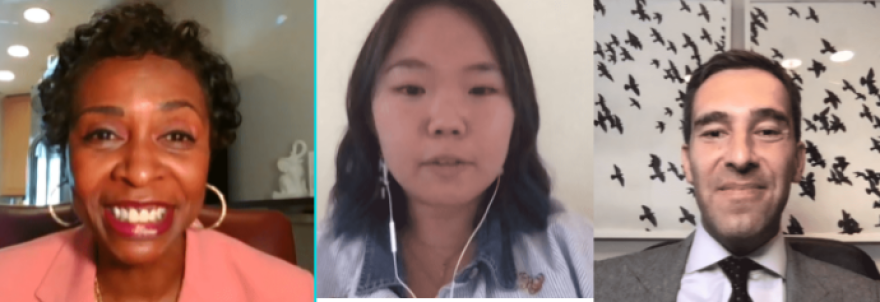Baltimore City teachers, students and activists are backing a bill that aims to give the Federal Communications Commission the ability to investigate internet service providers for discrimination.
The Anti-Digital Redlining Act, introduced by Rep. Yvette Clarke, a New York Democrat, would also mandate that providers provide service to areas that are digitally redlined, a term advocates use to describe internet service providers’ practice of laying fiber primarily in high-income areas, while predominantly low-income users remain dependent on slower, legacy infrastructure.
“Throughout the pandemic, my family and I have had to decide who got priority to use the internet,” said Kimberly Vasquez, a 2021 graduate of Baltimore City College High School who spent her senior year dealing with unreliable WiFi. “Was my education and my sister's education more important or the occupation of my parents, who put food on the table?”
Vasquez spoke at a news conference Monday , where Rep. Clarke said her bill’s aim is to increase market competition between internet service providers in underserved neighborhoods to ensure their residents receive fast, affordable broadband coverage.
“Too often, digital redlining occurs when Internet service providers do not upgrade transmission systems in low and medium income communities because they believe the communities are not as profitable as higher income communities,” she said. “Broadband is a necessity and in the 21st century, it must be a right — not a luxury, not a privilege.”
About 40% of Baltimore households don’t have high-speed, reliable broadband internet access, according to a 2021 report from the Abell Foundation, which also found that 73% of white Baltimore households in the city could get online, compared to just half of Black households.
“This inequity represented a major challenge in 2018, but it became a crisis in 2020,” Councilman Zeke Cohen said, recapping the ways that the internet became even more vital to daily life when the pandemic hit: school, work and telemedicine all required reliable broadband access.
“We know that burden falls hardest on black and brown indigenous families,” the Democrat said. “Every American, regardless of race or class, deserves access to the internet.”
City schools teacher Kelsey Ko said she worries that government leaders may lose focus on the persistent connection problems her students face as in-person learning resumes this fall.
“I witnessed firsthand how this digital divide unequivocally affected my students, inhibiting their ability to learn, forge relationships with their peers and pursue opportunities and access different resources,” she said. “We need continued advocacy and resources on the federal and state level to find a more permanent solution to ending digital inequity.”



